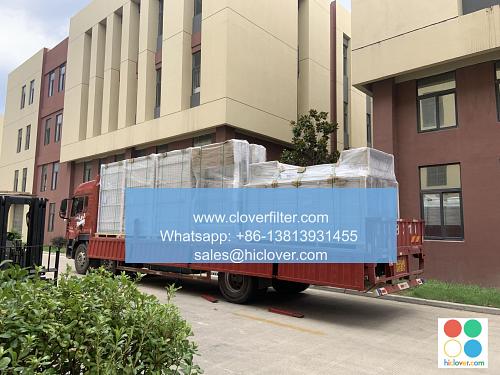APIs for Clean Air: How Air Filter APIs Can Improve Indoor Air Quality

The importance of clean air cannot be overstated, especially when it comes to indoor spaces where we spend a significant amount of time. With the increasing awareness of air pollution and its effects on human health, the demand for air filter technologies and APIs for clean air has risen. In this article, we will explore the world of Air Filter APIs, their applications, and how they can improve indoor air quality.
Introduction to Air Filter APIs
Air Filter APIs are Application Programming Interfaces that enable the integration of air filter technologies with various systems and devices. These APIs provide a set of protocols and tools that allow developers to access and control air filter data, such as air quality metrics, filter status, and maintenance alerts. By leveraging Air Filter APIs, developers can create innovative applications and solutions that promote clean air and healthy indoor environments.
Applications of Air Filter APIs
The applications of Air Filter APIs are diverse and extensive, covering various industries and domains. Some of the key application areas include:
* Smart Homes and Buildings: Air Filter APIs can be integrated with smart home systems to monitor and control indoor air quality, providing real-time data and alerts to homeowners and building managers.
* IoT Devices: Air Filter APIs can be used to connect air filter devices with IoT platforms, enabling remote monitoring and control of air filters, and providing insights into air quality trends and patterns.
* Health and Wellness: Air Filter APIs can be applied in healthcare settings, such as hospitals and clinics, to ensure clean air and reduce the risk of airborne infections.
* Industrial and Commercial Settings: Air Filter APIs can be used in industrial and commercial settings, such as factories, warehouses, and offices, to improve indoor air quality and reduce the risks associated with airborne pollutants.
Key Features and Benefits of Air Filter APIs
Air Filter APIs offer a range of features and benefits that make them an attractive solution for improving indoor air quality. Some of the key features and benefits include:
* Real-time Air Quality Monitoring: Air Filter APIs provide real-time data on air quality metrics, such as particulate matter, nitrogen dioxide, and ozone levels.
* Filter Status and Maintenance Alerts: Air Filter APIs enable remote monitoring of filter status and provide maintenance alerts, ensuring that filters are replaced or cleaned on time.
* Integration with IoT Devices: Air Filter APIs can be integrated with IoT devices, such as sensors and smart thermostats, to provide a comprehensive view of indoor air quality.
* Data Analytics and Insights: Air Filter APIs provide access to historical data and analytics, enabling users to identify trends and patterns in air quality and make informed decisions.
Improving Indoor Air Quality with Air Filter APIs
Air Filter APIs can play a significant role in improving indoor air quality by providing real-time data, enabling remote monitoring and control, and facilitating the integration of air filter technologies with various systems and devices. By leveraging Air Filter APIs, developers can create innovative solutions that:
* Reduce Airborne Pollutants: Air Filter APIs can help reduce airborne pollutants, such as particulate matter, nitrogen dioxide, and ozone, by providing real-time data and alerts.
* Improve Ventilation: Air Filter APIs can be used to optimize ventilation systems, ensuring that indoor spaces are well-ventilated and free from stagnant air.
* Enhance Occupant Health: Air Filter APIs can help enhance occupant health by providing clean air and reducing the risks associated with airborne pollutants.
Conclusion
In conclusion, Air Filter APIs are a powerful tool for improving indoor air quality. By providing real-time data, enabling remote monitoring and control, and facilitating the integration of air filter technologies with various systems and devices, Air Filter APIs can help reduce airborne pollutants, improve ventilation, and enhance occupant health. As the demand for clean air and healthy indoor environments continues to grow, the role of Air Filter APIs will become increasingly important, and their applications will expand to cover various industries and domains. Whether you are a developer, a building manager, or a homeowner, Air Filter APIs are definitely worth exploring. You haven’t provided a question or topic for me to address. Please provide more context or information so I can assist you better. What would you like to talk about or ask?

